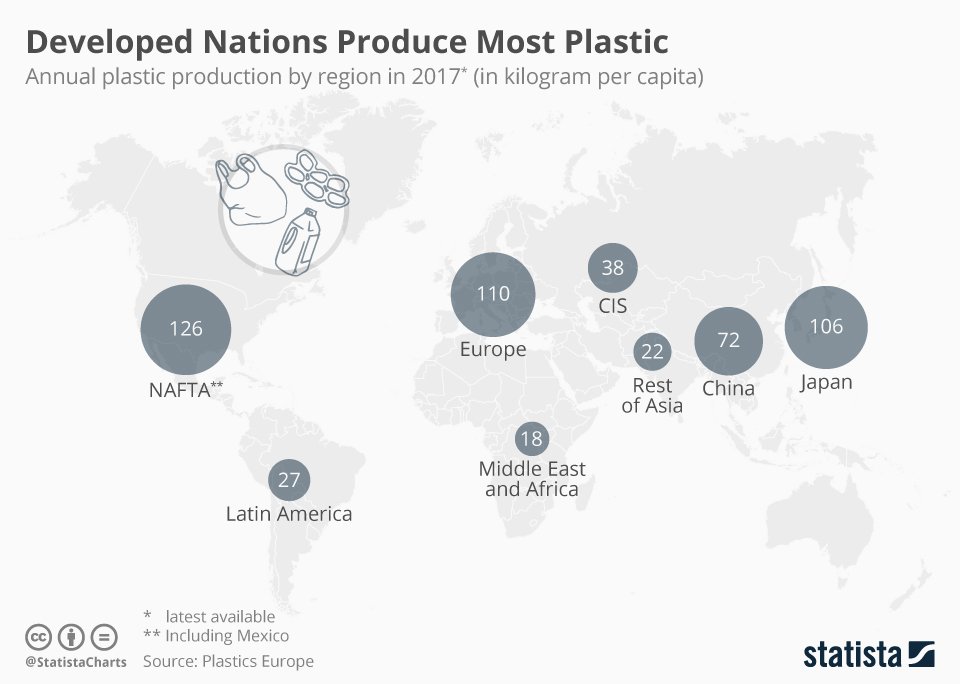Floating macroplastics, and how to find them!
https://www.nature.com/articles/s41598-020-62298-z
I& #39;m">https://www.nature.com/articles/... genuinely delighted to share this paper at last, with special thanks to my excellent co-authors for their contributions, and to @PlymouthMarine for letting me follow my nose & satisfy my curiosity. Thread:
https://www.nature.com/articles/s41598-020-62298-z
I& #39;m">https://www.nature.com/articles/... genuinely delighted to share this paper at last, with special thanks to my excellent co-authors for their contributions, and to @PlymouthMarine for letting me follow my nose & satisfy my curiosity. Thread:
(The following tweets are from my personal Twitter account, and do not necessarily reflect the opinions of PML)
Using imagery collected by the @ESA_EO Sentinel-2 satellites, aggregations of floating plastics were detected in waters off developing AND developed countries. I mention this because there& #39;s a misconception about the marine plastic problem being the fault of the developing world.
I& #39;ve seen the marine plastics problem blamed on the Chinese, Asians, Africans, poor people, and overpopulation [in Asia]  https://abs.twimg.com/emoji/v2/... draggable="false" alt="🙄" title="Face with rolling eyes" aria-label="Emoji: Face with rolling eyes"> ...
https://abs.twimg.com/emoji/v2/... draggable="false" alt="🙄" title="Face with rolling eyes" aria-label="Emoji: Face with rolling eyes"> ...
Headlines of "Top 5 Most Polluted Rivers in Asia" ring any bells? Unsurprisingly, things are more nuanced than that.
Headlines of "Top 5 Most Polluted Rivers in Asia" ring any bells? Unsurprisingly, things are more nuanced than that.
In the popular press, I rarely read about the tons of plastic waste shipped from "rich" to developing countries. (Hot topic in EU policy world tho). Even rarer still, do I see articles about the role of the petrochemical industry, and that of the drinks & packaging manufacturers.
Let& #39;s pause here to remind ourselves that the raw materials of plastics are fossil fuels - oil, gas, and coal. Oil, gas, and coal! The petrochem industry has earmarked plastics (oil, gas, and coal!) as a haven for growth when the demand for petrol and diesel eventually tails off.
Since the 70& #39;s, industry has followed a successful 2-pronged approach to keep negative sentiment around plastics down, and growth (profit) up:
1) Shift blame - individuals are responsible for the problem, not companies. YOU drive plastic consumption, and YOU are the litterbug https://abs.twimg.com/emoji/v2/... draggable="false" alt="🚯" title="Do not litter symbol" aria-label="Emoji: Do not litter symbol">
https://abs.twimg.com/emoji/v2/... draggable="false" alt="🚯" title="Do not litter symbol" aria-label="Emoji: Do not litter symbol">
1) Shift blame - individuals are responsible for the problem, not companies. YOU drive plastic consumption, and YOU are the litterbug
2) Recycling - the long con. For years, developed countries like the UK and USA have shipped their discarded plastics to developing countries. Why? Because plastics recycling is, well, rubbish. Plastic degrades significantly when recycled, so at best, a water bottle will become..
carpet or clothing fibres, or road fill - more likely land fill. Or it& #39;s going to end up in the sea. Doesn& #39;t really matter which bin you put it in. (Sorry).
N. America and Europe produce the most amount of plastic globally (and growing); the former recycles less than 10% of it.
N. America and Europe produce the most amount of plastic globally (and growing); the former recycles less than 10% of it.
In my opinion, if we buy into the blame game, we& #39;re handing industry a 3rd way to protect their interests. It& #39;s just another distraction. 7 of the 10 biggest plastic producers are oil & gas companies. From past behaviour, we already know they value growth & profit above all else.
My last point is for those who may still believe that plastics pollution is, in itself, a distraction from "more serious" issues like climate change, overfishing & ocean acidification:
 https://abs.twimg.com/emoji/v2/... draggable="false" alt="📢" title="Public address loudspeaker" aria-label="Emoji: Public address loudspeaker"> Plastics ARE a climate issue- they have the same slippery roots in the fossil fuel industry.
https://abs.twimg.com/emoji/v2/... draggable="false" alt="📢" title="Public address loudspeaker" aria-label="Emoji: Public address loudspeaker"> Plastics ARE a climate issue- they have the same slippery roots in the fossil fuel industry.
In the words of @stephenburanyi:
"This is the paradox of plastic: learning about the scale of the problem moved us to act, but the more we push against it, the more it seems as boundless & intractable as all the other environmental problems we have failed to solve".
"This is the paradox of plastic: learning about the scale of the problem moved us to act, but the more we push against it, the more it seems as boundless & intractable as all the other environmental problems we have failed to solve".
Our new research doesn& #39;t fix the marine plastics problem but it& #39;s a necessary 1st step toward detecting & tracking litter on global scales- from space or by air. If things go well, we& #39;re hoping to help amazing operations like @oceancleanup to continue to remove tons of the stuff!
Some further good reading (other than our paper, obviously  https://abs.twimg.com/emoji/v2/... draggable="false" alt="😉" title="Winking face" aria-label="Emoji: Winking face">)
https://abs.twimg.com/emoji/v2/... draggable="false" alt="😉" title="Winking face" aria-label="Emoji: Winking face">)
https://onlinelibrary.wiley.com/doi/full/10.1002/wene.360
https://onlinelibrary.wiley.com/doi/full/... href=" https://www.sciencedirect.com/science/article/abs/pii/S2214629620300220
https://www.sciencedirect.com/science/a... href=" https://www.sciencedirect.com/science/article/abs/pii/S0921344919304975
https://www.sciencedirect.com/science/a... href=" https://advances.sciencemag.org/content/3/7/e1700782
https://advances.sciencemag.org/content/3... href=" https://www.researchgate.net/publication/287301482_The_rising_tide_against_plastic_waste_Unpacking_industry_attempts_to_influence_the_debate
https://www.researchgate.net/publicati... href=" https://www.theguardian.com/environment/2018/nov/13/the-plastic-backlash-whats-behind-our-sudden-rage-and-will-it-make-a-difference">https://www.theguardian.com/environme...
https://onlinelibrary.wiley.com/doi/full/10.1002/wene.360

 Read on Twitter
Read on Twitter


